February 2022 Newsletter
Black History Month
Happy Black History Month!
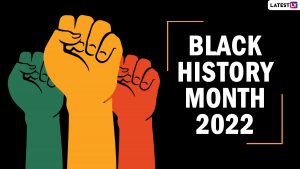 Black History Month is an annual celebration of achievements by African Americans and a time for recognizing their central role in U.S. history. Many of these significant figures were a part of the Civil Rights Movement in the 1950s and 1960s. Also known as African American History Month, the event grew out of “Negro History Week,” the brainchild of noted historian Carter G. Woodson. Since 1976, every U.S. president has officially designated the month of February as Black History Month. Other countries around the world, including Canada and the United Kingdom, also devote a month to celebrating Black history. Because of its international appeal, Black History Month has become so much more than the Civil Rights Movement. It offers an opportunity for students to learn about the diaspora of African peoples. Black History includes the reign of Mansa Musa in Timbuktu, writers Olaudah Equiano, Phillis Wheatley and Rudolph Fisher, poet Paul Laurence Dunbar, and the many other ancestors of the past who have transitioned to the next life.
Black History Month is an annual celebration of achievements by African Americans and a time for recognizing their central role in U.S. history. Many of these significant figures were a part of the Civil Rights Movement in the 1950s and 1960s. Also known as African American History Month, the event grew out of “Negro History Week,” the brainchild of noted historian Carter G. Woodson. Since 1976, every U.S. president has officially designated the month of February as Black History Month. Other countries around the world, including Canada and the United Kingdom, also devote a month to celebrating Black history. Because of its international appeal, Black History Month has become so much more than the Civil Rights Movement. It offers an opportunity for students to learn about the diaspora of African peoples. Black History includes the reign of Mansa Musa in Timbuktu, writers Olaudah Equiano, Phillis Wheatley and Rudolph Fisher, poet Paul Laurence Dunbar, and the many other ancestors of the past who have transitioned to the next life.
If you are looking for resources and lesson plans to commemorate Black history in your classroom, check out the links below!
- Black History Month – blackhistorymonth.gov
- Celebrate Black History Month – National Museum of African American History and Culture
- 60 Second Podcasts for Black History Month
- African American History and Culture in the United States – EDSITEment
- Black History Classroom Materials – Facing History and Ourselves
- How Are You Teaching Black History? – Learning for Justice
- Exploring the Vastness of Black History – Edutopia
- Black History – PBS Learning Media
- BlackPast
- Black History Month Resource Guide for Educators and Families – Center for Racial Justice in Education
- Civil Rights Movement Archive
- Civil Rights Digital Library
- Teaching Resources for Black History Month – National Archives
- Black History Month – iCivics
Showing Movies and Videos in Class
As I have said before, this school year has been a trying one for teachers. I am not in the classroom and will not pretend to understand the difficulties that many educators face and have faced. You all are handling yourselves with grace and professionalism and I can only tip my hat at the amazing job that is happening. To that end I have fielded several questions this school year about showing movies in the classroom, which is an uptick than in previous years. I recently came across this article and thought I would share excerpts from it with you. Please reach out to your building administrators or district leads for specific questions concerning policies surrounding showing movies and videos in your classroom.
Showing Movies & Videos in Class (for access to the full article)
By: Erik Ofgang
Most of us remember at some point in our education a teacher who would wheel a TV into class, pop a video in the VCR, press play, and then take a literal or proverbial nap for the remainder of class time.
That’s exactly how not to utilize film, documentaries, or other video presentations in class, says Britton Barnes, a 7th and 8th grade social studies teacher at Clement Middle School of the Redlands USD in California. However, when used correctly – in short clips with educator-provided context – videos, films, and documentaries can be a way to enhance lessons while giving students a deeper understanding of topics ranging from science to history to media literacy.
Use Video To Support Not Replace The Lesson
Videos are best used to build on already existing lessons by providing another way to understand or connect with the material for students. “It’s one thing to see the photosynthesis process or worksheet, or on paper, it’s another thing to visually see it,” Beerer says. Barnes uses video to help his students form a deeper connection with history through historic clips and recreations that can help them connect with the material.
Keep Videos Short and Model Good Viewing Habits 
While extended screenings may work once in a while, you generally want to keep it short, 15 minutes or under, and almost never want to devote an entire class session to a screening. Beerer says research shows shorter clips are better, and it is easier to align a shorter clip both to your existing lesson plans and to students’ attention spans.
Some of the clips Barnes uses in his class can be as short as a minute or two, and rarely exceed a quarter-hour on a video or a single activity of any kind. “I don’t like to go over 15 minutes on anything. I like to keep moving,” he says.
Examine the Source and Accuracy of Films and Videos
When screening documentaries, Barnes has his students source the video by asking questions such as:
- Who made this?
- Why did they make it?
- Is it relevant?
- Can I corroborate this information with maybe something I’ve read?
“Then I always tell my students, we’re going to learn to be historians rather than learn history, right? Because those are skills you carry across all disciplines,” he says.
He has a similar approach when showing historical films.
“When we are using a Hollywood film, we’ll even play games like, ‘Is it history? Or is it Hollywood?’” Barnes says.
After guessing which film segments are real and which are created by screenwriters, students then research and confirm the changes Hollywood made. “The way you present can create a lot of excitement, and a lot of tension or drama, and interest,” he says.
Make Sure The Video Screens on Your Class System and Licensing is In Order
Many educational services provide videos to teachers specifically for the purpose of screening in class. In general, showing a film at school for students is permitted under U.S. copyright law, but holding a public viewing with parents or other community members is not allowed. Check with a school librarian or with your technology or AV teams for best practices and institution policies.
Empower Students to Share Their Reactions to the Video and Film
Educators can all too often influence how students react to a film screened in class, says Arnold Blumberg, an adjunct professor at the University of Maryland, Baltimore County, who regularly incorporates film into his classes. “It’s an easy pitfall, particularly as someone who’s probably far more steeped in the material than the students are, or has seen a given movie many more times than they’re likely to have seen it, to start imposing your perceptions on them,” he says. “And it’s important even as the teacher to not dominate the immediate reactions, and to allow these things to happen organically.”
That means establishing an environment in which all students feel comfortable reacting to the film in the way that they experienced it.
Create Your Own Wordle
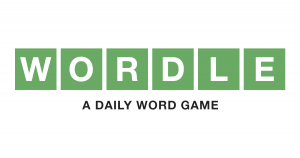 Are you obsessed with the daily Wordle as much as I am? Now educators (and everyone else for that matter) has the opportunity to create your own Wordle. Use this platform to strengthen student vocabulary, help students prepare for a summative assessment, or a myriad of other ways to engage young people with words! Wordle is a fun and great way to engage students with critical thinking skills. Send me an email with all of the fantastic ways you were able to incorporate Wordle into your classroom!
Are you obsessed with the daily Wordle as much as I am? Now educators (and everyone else for that matter) has the opportunity to create your own Wordle. Use this platform to strengthen student vocabulary, help students prepare for a summative assessment, or a myriad of other ways to engage young people with words! Wordle is a fun and great way to engage students with critical thinking skills. Send me an email with all of the fantastic ways you were able to incorporate Wordle into your classroom!
Explore Geo-Inquiry With Us!
Jump into our Tennessee C3 Hub featuring four new elementary geography inquiries designed by our team of terrific Tennessee teachers!
Tennessee teachers, led by Hamilton County School District and supported by National Geographic, are using the Inquiry Design Model (IDM) to help students develop an explorer’s mindset! By weaving together geographic thinking, inquiry, literacy, and civic action, these elementary teachers are showing us how you can do it all. Check out some of the inquiries Hamilton teachers have created!
A Great Moral and Social Force: A History of Black Banks
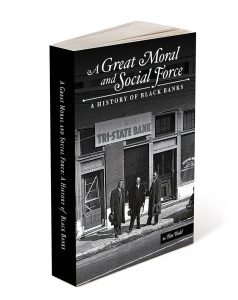 KC Fed publishes a new historic book on Black banks, communities and impact.
KC Fed publishes a new historic book on Black banks, communities and impact.
The Kansas City Fed has published its latest book, A Great Moral and Social Force: America’s First Black Banks. This book explores the growth of Black banks in the cities of Richmond, Virgina; Boley, Oklahoma; Chicago; Memphis, Tennessee; and Detroit.
These cities each have a rich history of Black wealth and economic success that may not be familiar to many Americans. The book moves across eras to examine some of the communities where these banks played a dual role in establishing both economic opportunity and social equality.
Printed books will be shipped as soon as they are available. Please direct questions to historicalbooks@kc.frb.org.
TO DOWNLOAD A DIGITAL COPY, OR FOR MORE INFORMATION, VISIT THE BOOK WEBSITE.
Next Gen Personal Finance Taxes Curriculum
NGPF’s Taxes curriculum is now updated for the 2021 filing year! Bring these current and relevant resources to your students so they can learn the basics of why we file taxes, the various tax forms they’ll need, and how they can file a tax return. Keep reading to learn more about these updates!
What’s Been Updated?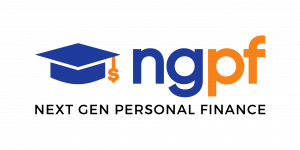
- Figures for the 2021 Filing Year: All of NGPF’s curriculum is updated to include the 2021 standard deduction, minimum income requirements to file a return, tax brackets, and more.
- Lessons: NGPF lessons in the Full-Year, Semester, 9-Week, and Middle School courses are all up to date.
- Nearpod Lessons: Any updates made in Semester, 9-Week, and Middle School Course lessons have also been made in their corresponding Nearpod lessons.
- Supplemental Resources & Answer Keys: All activities, case studies, data crunches, and more have been updated to reflect the latest figures and information for the 2021 tax filing year.
- Tax Forms: All resources now include the latest tax forms such as the W-2, 1040, and more for the 2021 filing year.
- Spanish Resources: All updates made in English resources are now reflected in the Spanish versions.
What Has Not Been Updated?
These updates are not a complete revamp of NGPF’s tax resources. We did not rewrite entire lessons or activities. We updated the existing content to reflect the latest figures and information relevant to the 2021 filing year.
Nebraska Personal Finance Challenge
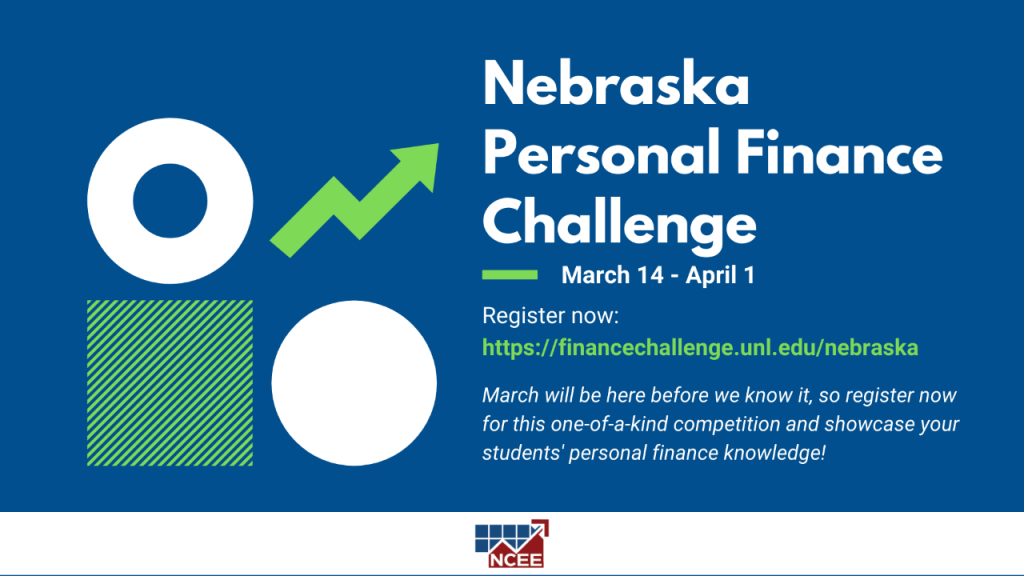
Books of the Month
February “Books of the Month”
You’ll Never Believe What Happened to Lacey
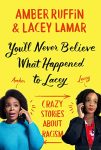 By: Amber Ruffin and Lacey Lamar
By: Amber Ruffin and Lacey Lamar
Now a writer and performer on Late Night with Seth Meyers and host of The Amber Ruffin Show, Amber Ruffin lives in New York, where she is no one’s First Black Friend and everyone is, as she puts it, “stark raving normal.” But Amber’s sister Lacey? She’s still living in their home state of Nebraska, and trust us, you’ll never believe what happened to Lacey.
The Sioux Chef’s Indigenous Kitchen
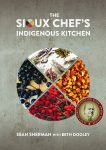 By: Beth Dooley and Sean Sherman
By: Beth Dooley and Sean Sherman
Here is real food—our indigenous American fruits and vegetables, the wild and foraged ingredients, game and fish. Locally sourced, seasonal, “clean” ingredients and nose-to-tail cooking are nothing new to Sean Sherman, the Oglala Lakota chef and founder of The Sioux Chef. In his breakout book, The Sioux Chef’s Indigenous Kitchen, Sherman shares his approach to creating boldly seasoned foods that are vibrant, healthful, at once elegant and easy.
Sherman dispels outdated notions of Native American fare—no fry bread or Indian tacos here—and no European staples such as wheat flour, dairy products, sugar, and domestic pork and beef.
Leadership in Turbulent Times
 By: Doris Kearns Goodwin
By: Doris Kearns Goodwin
In Leadership, Goodwin draws upon the four presidents she has studied most closely—Abraham Lincoln, Theodore Roosevelt, Franklin D. Roosevelt, and Lyndon B. Johnson (in civil rights)—to show how they recognized leadership qualities within themselves and were recognized as leaders by others. By looking back to their first entries into public life, we encounter them at a time when their paths were filled with confusion, fear, and hope.
The Soul of America
 By: Jon Meacham
By: Jon Meacham
Our current climate of partisan fury is not new, and in The Soul of America Meacham shows us how what Abraham Lincoln called the “better angels of our nature” have repeatedly won the day. Each of these dramatic hours in our national life have been shaped by the contest to lead the country to look forward rather than back, to assert hope over fear—a struggle that continues even now. While the American story has not always—or even often—been heroic, we have been sustained by a belief in progress even in the gloomiest of times. In this inspiring book, Meacham reassures us, “The good news is that we have come through such darkness before”—as, time and again, Lincoln’s better angels have found a way to prevail.
National Council for History Education – The Rural Experience
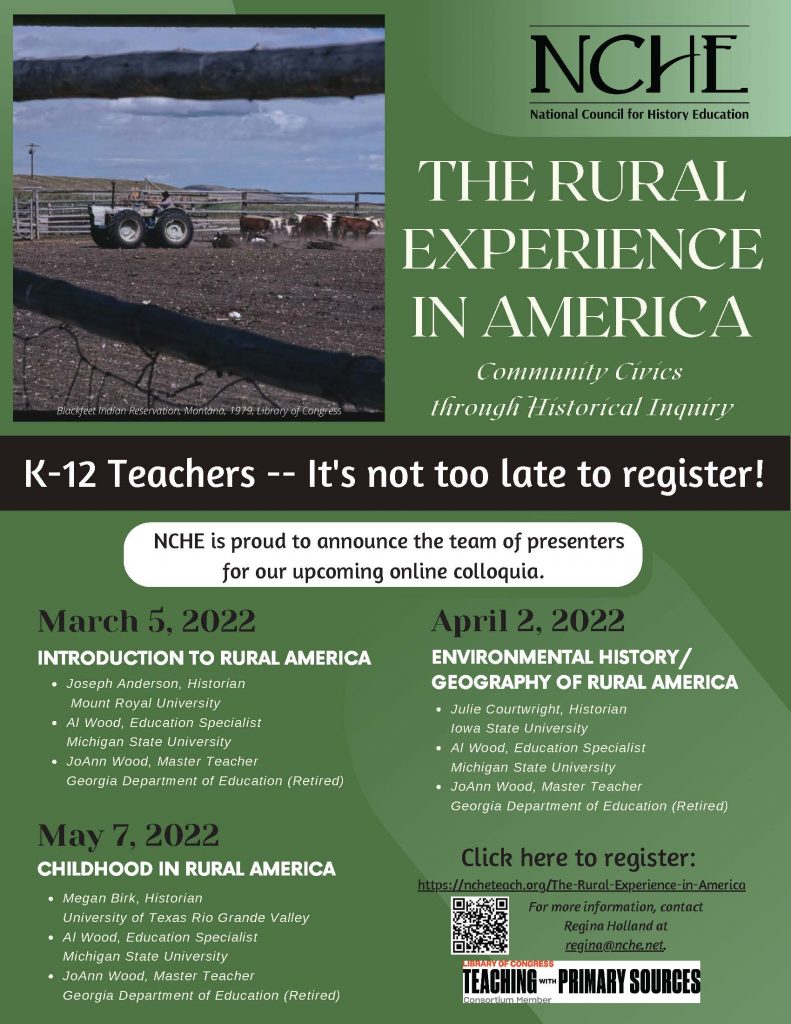
Foreign Policy Association – Great Decisions Teacher Training Institute
Admissions are Now Open!
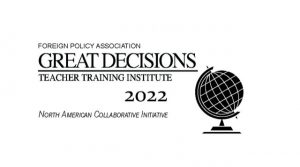 The FPA is proud to announce that the 14th annual Great Decisions Teacher Training Institute is now accepting applications from teachers across North America.
The FPA is proud to announce that the 14th annual Great Decisions Teacher Training Institute is now accepting applications from teachers across North America.
If you apply today, you will have the opportunity to join a top-tier group of fellow educators for one week of intensive international affairs workshops with policy makers and experts in New York City.
Participants will receive travel stipends and free hotel accommodation during the institute, as well as visits such as the Metropolitan Museum of Art, The Federal Reserve, and the United Nations.
If you or educators you know are looking for a way to integrate new techniques, materials, and perspectives into the classroom, do not pass up this opportunity to join the Great Decisions Teacher Training Institute!
Email teachers@fpa.org and request an application form.
Applications are due Friday, March 11th, 2022
American Lawyers Alliance – Teacher of the Year Award
LAW-RELATED EDUCATION TEACHER OF THE YEAR $3,000 AWARD
For the past sixty years, the American Lawyers Alliance has been active in its support of public education, citizenship awareness and various service programs. Recognizing the vital role that teachers play in law-related education, the ALA began in 1985 to sponsor Law-Related Education Teacher of the Year Awards. 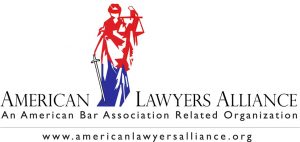
PURPOSE:
The purpose of these four awards is to honor public and private High School teachers who have made significant contributions in law-related education and have developed programs that meet the following criteria.
- Furthered the understanding of the role of the courts, law enforcement agencies and the legal profession
- Helped students recognize their responsibilities as well as their rights
- Encouraged effective law-related education programs in their schools and communities
- Increased communication among students, educators and those involved professionally in the legal system
NOMINATIONS:
Nominations for the 2022 Law-Related Education Teacher of the Year Awards may be submitted by the applicant, school administrators, other teachers, students, lawyers, judges, professional members of the community, or any other interested parties by March 15, 2022.
Keeping the Spirit of Democracy Alive Across the Nation
The American Lawyers Alliance is a charitable, educational and nonprofit organization whose mission is to promote understanding and appreciation of the law and the American legal system.
Visit the ALA website www.americanlawyersalliance.org for an application and information about this award, including information about previous winners.
Hamilton and the First Bank of the U.S.
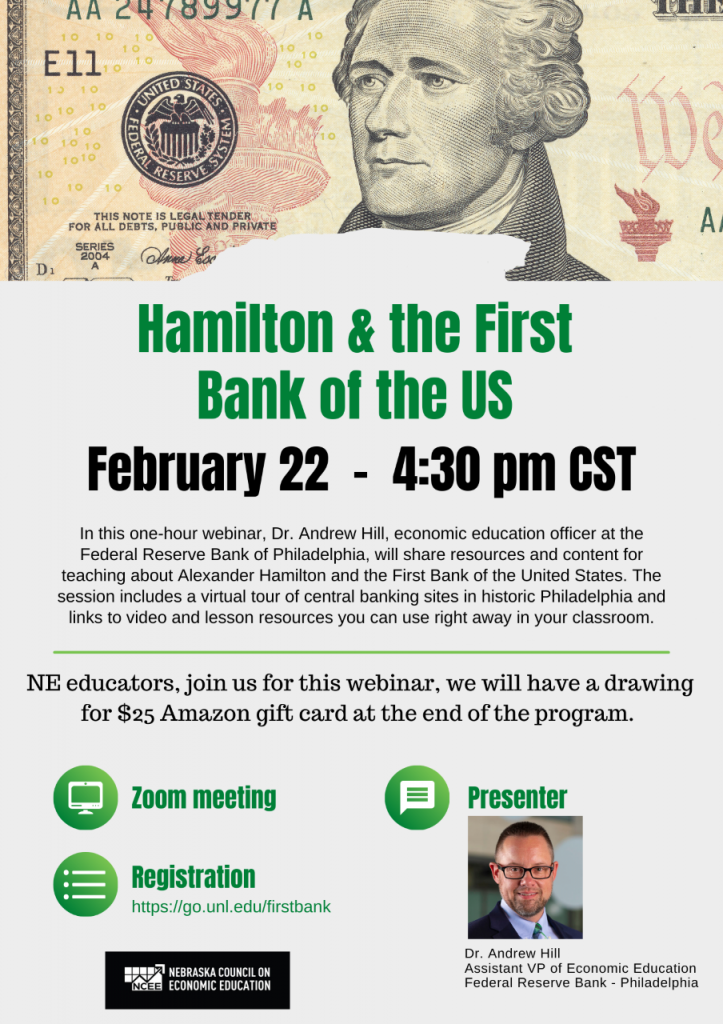
MyImpact Challenge – Bill of Rights Institute
MyImpact Challenge is a civic engagement contest hosted by the Bill of Rights Institute. Our goal is simple: foster a robust understanding of citizenship and get students active in their communities now!
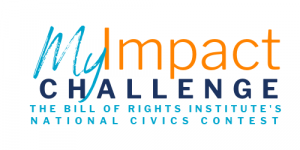 Submission is open to US citizens and US based young people between the ages of 13 and 19 years old on January 1, 2021. Submission must be received by 11:59 pm PT on Sunday, May 1, 2022. Only submissions entered through MyImpact Challenge’s online portal will be accepted for the contest. The contest is designed for one student per entry, but groups of up to five students may submit as a single group entry. Prizes awarded to group entries will be split evenly between entrants.
Submission is open to US citizens and US based young people between the ages of 13 and 19 years old on January 1, 2021. Submission must be received by 11:59 pm PT on Sunday, May 1, 2022. Only submissions entered through MyImpact Challenge’s online portal will be accepted for the contest. The contest is designed for one student per entry, but groups of up to five students may submit as a single group entry. Prizes awarded to group entries will be split evenly between entrants.
Each submission must include the following:
- An essay of up to 1,200 words expressing the student’s a) understanding of the ideal of “E Pluribus Unum” and how their project furthers that ideal in their community b) How their project furthers at least one Civic Virtue and one of Founding Principle as defined in the Bill of Rights Institutes “Principles and Virtues.”
- A report of up to 2,000 words detailing a student’s completed or in-progress civic engagement project. Report must include the following components.
- The inspiration for the project.
- The project plan.
- Details of the project’s execution
- At least two examples of the project’s demonstrated impact on the community.
- How the student(s) grew in understanding of the role of Civic virtue, knowledge of their communities, and their ability to support or impact them.
- Visual documentation of the student’s project and its results in one of the following formats:
- Photographic Only: No fewer than ten and no more than twenty high-resolution still photographs, submitted in either JPEG or PNG format.
- Video Only: One video of no more than five minutes, submitted in MP4 format
- Mixed Photographic and Video: No fewer than five and no more than seven high-resolution still photographs as well as one video of no more than two minutes. Photographs must be in either JPEG or PNG format, and video must be in MP4 format.
Nebraska Story Map Competition 2022
The Nebraska Story Map Competition encourages students to use a powerful mapping application called geographic information systems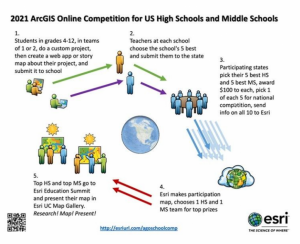 (GIS) to research and analyze some aspects of Nebraska. Students will showcase their results in a story map. This online competition is open to students in high school grades 9-12 or middle school grades 4-8. Students can complete a map project in a team of 1 or 2 students.
(GIS) to research and analyze some aspects of Nebraska. Students will showcase their results in a story map. This online competition is open to students in high school grades 9-12 or middle school grades 4-8. Students can complete a map project in a team of 1 or 2 students.
The 5 best HS + 5 best MS map entries will be awarded $100 each. Two-member student teams will divide the cash award. FYI- we have had no middle school student map entries since 2018. Let’s change this!
This URL Nebraska Story Map Competition 2022 (arcgis.com) provides a description of the competition, showcases last year’s top 5 HS student maps, and tutorials on how to use the GIS mapping software called ArcGIS Online. Contact Dr. Lesli Rawlings at lerawli1@wsc.edu if you have any questions about the competition or want more information.
Registration closes on February 11, 2022.
2022 Summer Professional Development Opportunities in Social Studies
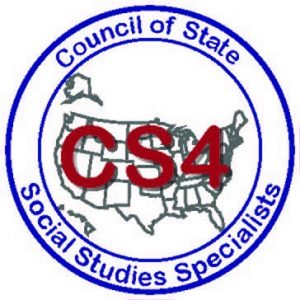 This document was compiled by the Council of State Social Studies Supervisors as a way to communicate the wealth of professional development opportunities available to social studies educators. A special thanks to all of the organizations who helped contribute to this work and to the many organizations who are offering high quality social studies professional development for social studies teachers across the country. Many of the opportunities below are offered free or low cost, but some opportunities do have a cost. When opportunities are highlighted in yellow, it means there are not yet 2022 updates for that particular program. The document will be updated through the spring of 2022. Please email Stefanie Wager at stefanie.rosenbergwager@gmail.com with any questions, comments, or to add programs to this list.
This document was compiled by the Council of State Social Studies Supervisors as a way to communicate the wealth of professional development opportunities available to social studies educators. A special thanks to all of the organizations who helped contribute to this work and to the many organizations who are offering high quality social studies professional development for social studies teachers across the country. Many of the opportunities below are offered free or low cost, but some opportunities do have a cost. When opportunities are highlighted in yellow, it means there are not yet 2022 updates for that particular program. The document will be updated through the spring of 2022. Please email Stefanie Wager at stefanie.rosenbergwager@gmail.com with any questions, comments, or to add programs to this list.
Journal of Economics Teaching
A Resource for the Economic Education Community!
JET is a peer-reviewed, economics pedagogy journal devoted exclusively to transmitting innovative teaching ideas to educators of economics at ALL levels. Production resources provided by the University of Nebraska – Omaha’s College of Business Administration.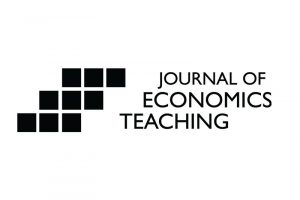
The Journal of Economics Teaching (JET) was the brainchild of Dirk Mateer and became a reality in 2015 through a generous start-up grant from the Thomas R. Brown Foundation.
JET was created to connect educators looking for a community to share their ideas on ways to teach economics as a whole or specific economic concepts. We encourage educators at all levels to submit, read, and connect with others in the community. The Journal will be publishing ideas from the elementary level through graduate level economics.
JET offers a new kind of journal for those educators interested in making their classroom more engaging and more innovative while not losing the rigor expected in an economics course. Along with journal articles, JET will provide supplemental materials like websites, computer programs, and lesson plans that help keep the lecture an environment conducive to learning economic materials.
Presidential Primary Sources Project
January 2022 through March 2022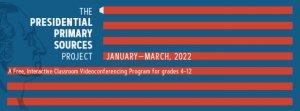
History Comes Alive in Your Classroom!
With the Presidential Primary Sources Project (PPSP), your class can engage in live, interactive discussions and use primary source documents to understand our nation’s presidents. Transport your students to places that helped shape past presidents’ lives. It’s easy to sign up for the PPSP, a free service, which is a partnership between Internet2, the National Park Service, and the National Archives.
ESRI Academy – Cartography
 Learn from experts and make beautiful maps using ArcGIS Pro.
Learn from experts and make beautiful maps using ArcGIS Pro.
Once, only cartographers made maps. Today, anyone can. Still, cartographers can teach people to make better maps, just as chefs can show people how to prepare better meals. With coaching from accomplished cartographers and practical, hands-on exercises, you’ll become a smarter mapmaker, ready to go beyond the defaults and produce engaging maps that communicate with impact.
President’s Day Teacher Resources
Presidents’ Day is a federal holiday celebrated on the third Monday in February; Presidents’ Day 2022 will occur on Monday, February 21. Originally established in 1885 in recognition of President George Washington, the holiday became popularly known as Presidents’ Day after it was moved as part of 1971’s Uniform Monday Holiday Act, an attempt to create more three-day weekends for the nation’s workers. While several states still have individual holidays honoring the birthdays of Washington, Abraham Lincoln and other figures, Presidents’ Day is now popularly viewed as a day to celebrate all U.S. presidents, past and present.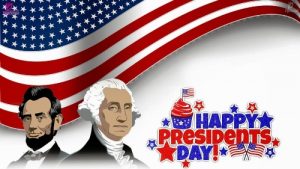
Below are resources to help you teach about President’s Day. It is an important holiday and it is also state law to commemorate the day.
Nebraska State Statute 79-794
(6) Appropriate patriotic exercises suitable to the occasion shall be held under the direction of the superintendent in every public, private, denominational, and parochial school on George Washington’s birthday, Abraham Lincoln’s birthday, Dr. Martin Luther King, Jr.’s birthday, Native American Heritage Day, Constitution Day, Memorial Day, Veterans Day, and Thanksgiving Day, or on the day or week preceding or following such holiday, if the school is in session.
- President’s Day Lessons – Center for Civic Education
- George Washington, Abraham Lincoln, and the President’s Day Holiday – EDSITEment
- George Washington’s Birthday – National Archives
- The President’s – WhiteHouse.gov
- President’s Day – GovInfo.gov
- Washington, Jefferson, and Lincoln: Three Great Presidents – Library of Congress
- President’s Day Activities – Education World



